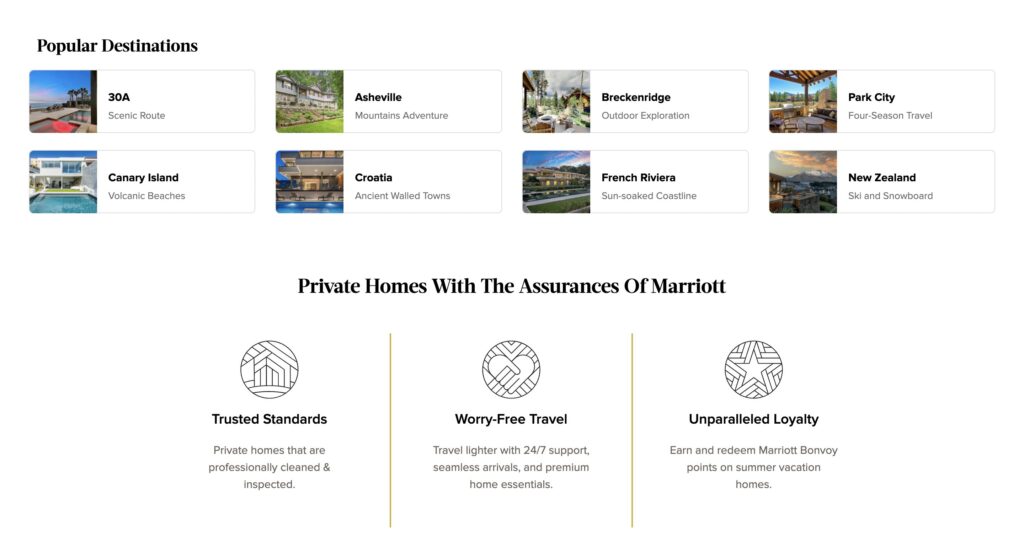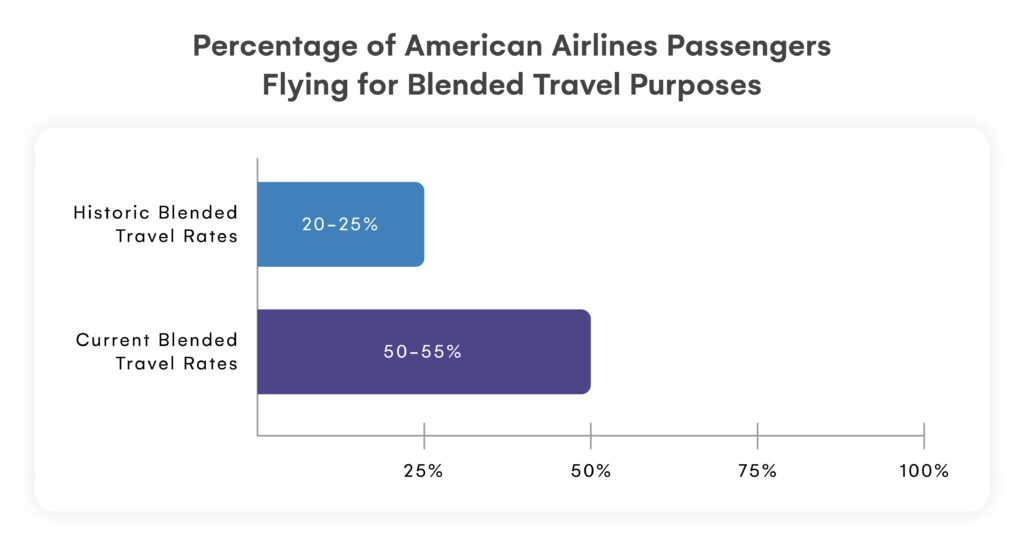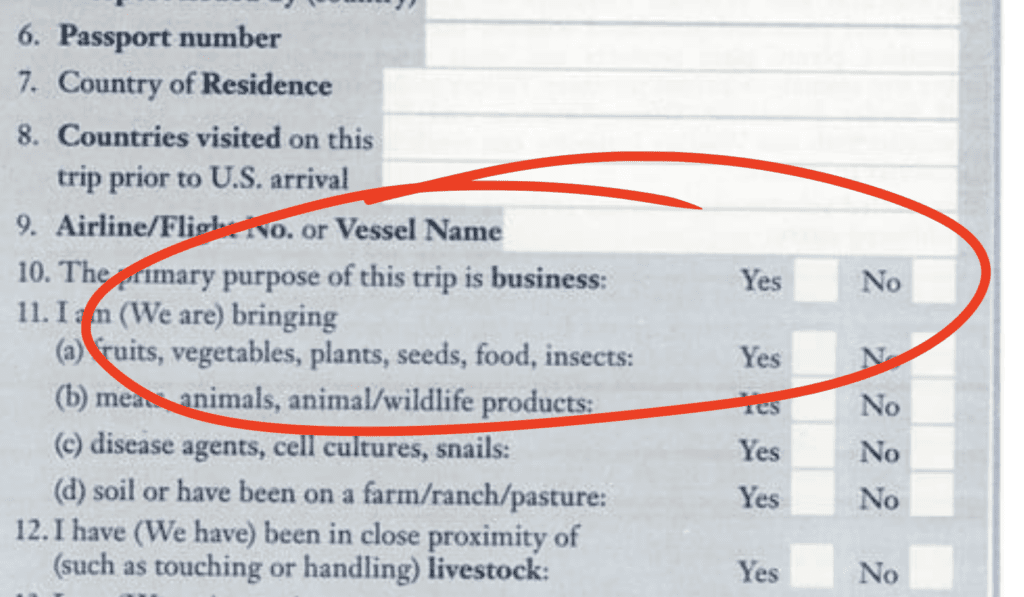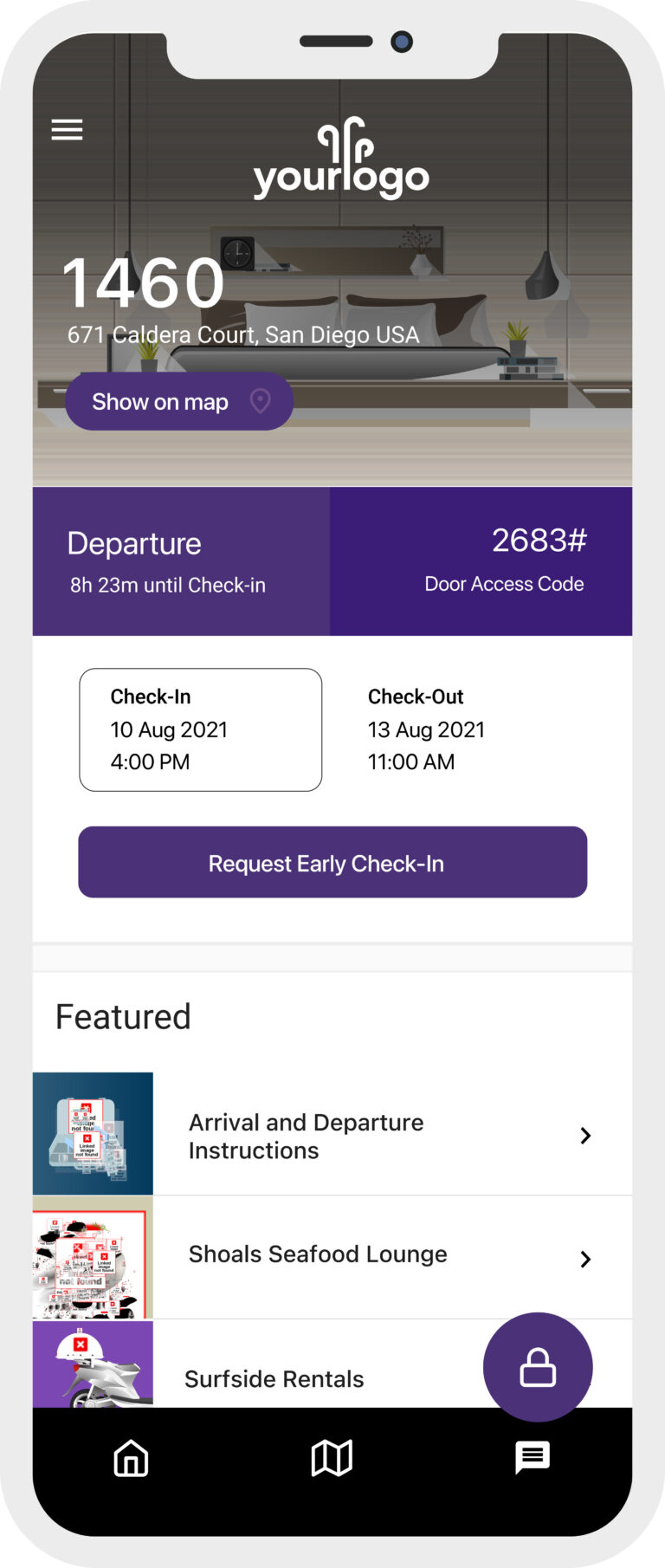CHAPTER 12
The Great Merging and What It Means for Your STR Business: The Challenges and the Opportunities
As the lines blur between hotels and STR, find out how to position your business
Listen to this chapter on SoundCloud.
The consolidation of the hotel and short-term rental market—brought about in large part by the success of short-term rental platforms and the surge in remote workers in the wake of the pandemic—has seen the rise of the Great Merging.
Hotels have moved into the short-term rental space, seeking to capture that growing sector of the hospitality market. Meanwhile, short-term rentals are looking to compete by offering the reliably high-quality service and luxury of a traditional hotel experience, while still providing the independence and convenience that modern guests crave.
The result is a new competitive topography that has both its challenges and opportunities. Here we look at some of the most recently developing trends in travel, and how you can use your understanding of them to achieve better occupancy rates and more direct bookings.
Read other chapters in The Reservation Recession.
Cross competition in the travel industry
We no longer have a market where hotels and short-term rentals stay in their respective lanes: Hotels and vacation rentals can now compete on the same platform, whether it be Booking.com or Airbnb, or other OTAs, for the same guests.
Because of this, the future of lodging looks much more flexible and dynamic for travelers. But this also means that hotels and short-term rentals need to respond accordingly and learn from each other if they’re to successfully tap into this shifting market.
Hotels getting into the vacation rental space
While Airbnb was once exclusively for short-term rentals, it’s becoming increasingly common to see hotels listing their rooms on the platform. Some hotels report seeing up to 15% of their bookings coming from Airbnb—a clear indicator that hotel operators are learning to make the platform work for them and not against them.
And, as a consequence of this, many hotels, even large chains, are adapting their offering—not just by listing their rooms on vacation rental plaftorms, but by actively moving into that space with their own short-term rental properties.
Take Marriott International, the world’s largest hotel group, as an example. In 2019, they launched Homes & Villas, their vacation home rental initiative, in 100 markets—today, you can find their properties, from New Zealand to the French Riviera, on their own STR platform.
Hotels are making a big effort to not fall behind to vacation rental properties, and short-term rental operators need to respond.

Vacation rentals going more professional
Hotels merging into the short-term rental space doesn’t mean short-term rentals are doomed to lose out as a result of more competition: According to Airbnb, nearly 90% of guests who first used the platform to book a hotel room came back to book a room in a short-term rental or an entire property for their next trip.
But for short-term rentals to capture those traditional hotel guests early on, they need to enhance their offering. Providing a consistently high-end experience, characterized by features like smart-tech solutions, seamless guest communication, premium in-home amenities, and digital guidebooks, can help vacation rentals position themselves as a viable alternative to hotels.
Property-type agnostic travelers: What matters is the experience, not the accommodation type
Not only are hotels and short-term rentals merging into each other’s markets, but guests are becoming less fixated on what type of accommodation they’re booking and more focused on the overall experience that it offers.
And since a guest using Airbnb or Booking.com will now see both hotels and short-term rentals in their search results, it’s that vacation experience that’s now the biggest influence on people’s booking choices.
As a result, rather than filtering by accommodation type (like hotel room vs. vacation home), guests are placing more importance on the features the accommodation offers. A family may look for child-proofed properties with a high chair and crib, while a remote worker will prioritize a strong WiFi connection and designated workspace.
What’s more important for guests than accommodation type is an ideal location, a simple booking experience, and an exceptional stay. Short-term rentals can capitalize on this opportunity by meeting guest expectations with premium in-unit amenities and upsells, a seamless booking and check-in process, and personalized guest engagement strategies that, together, make for an unforgettable vacation experience.
Blended purpose travel AKA “bleisure”
The traditional idea of traveling for business or leisure is speedily fading away. Thanks to the rise of remote work, travelers are combining their business trips and vacations, and extending their stays by days, weeks, or even months at a time.
The rise of business-leisure travel and digital nomad visas
Bleisure travel is on the upswing. Vasu Raja, Senior Vice President and Chief Commercial Officer of American Airlines made it clear their customers’ habits reflect this in the company’s 2022 Q1 earnings call:
“Historically, only about 20% to 25% of the trips in the airline were something that we call blended, where somebody was traveling for both business and leisure. For about five to six months now, about 50% to 55% of the trips in the airline are blended. And as we look forward into the coming months, that continues to be the case.”


Plus, as of 2022, some three dozen countries across the world offer some form of a digital nomad or freelance visa, from Europe to Africa to the Caribbean. These visas allow travelers to visit and work for various months, and even up to years, at a time, opening new opportunities for accommodation providers in these markets.


What more blended travelers can mean for your business
Digital nomad visas present enticing opportunities for short-term rental managers, so be sure to do your research. If any of your markets are in a country that offers a legal pathway toward an extended stay, you could tailor your property offering specifically to remote workers.
Hotels and short-term rentals can capitalize on the increase in blended travel by directing their offering toward the new hybrid traveler, creating a vacation experience that accommodates both the business and leisure needs of their guests.
The most obvious benefit of tailoring your offering to blended travelers is the potential for longer stays, which means fewer gaps in your booking calendar, and less need to invest in marketing and outreach.
How to take advantage of the Great Merging
With the right tools and tactics, you can position your short-term rental stays as providing the luxury and consistency of a hotel with the personalization of a vacation rental. And, with stays lasting longer, insulate your business from the seasonality that normally affects your occupancy rates.
Create a consistent experience across properties
If you manage properties across multiple markets, one of your main priorities should be creating a consistent experience for your guests, whether they’re visiting you in New York City or Chiang Mai. This means offering a unified, branded experience through your listings, direct booking website, guest app, and in-unit amenities.
Use tools like a branded guest app to give your guests a professional, consistent experience from the moment they book. Share a branded digital guidebook for insights into your property and the local area, and make sure all your units are designed and maintained to the same standard of quality.
Minimize risk for digital nomads and business-leisure travelers
Business-leisure travelers need a certain level of assurance when booking their properties. They need to know the WiFi won’t cut out in the middle of their meeting and that the property they’ll be making their base for a few weeks or months is safe and secure.
So be sure to offer business–level amenities that meet your guests’ expectations. Central to this is a fast and reliable internet service. Depending on the location of your properties, you might even want to set up a backup router, so if one cuts out, your guests are still covered.
And make the safety and reliability of your properties clear in all your messaging. So, highlight your reliable WiFi in your listings, and describe what safety features are in place.
Offer consistent amenities
Aside from strong WiFi and contactless access, there are numerous other amenities that blended purpose travelers will appreciate. One of the most important is a designated workspace. And if that isn’t an option for all your units, provide information on local coworking spaces or work-friendly cafes.
Other amenities that bleisure travelers will appreciate include quality kitchen appliances (especially a coffee maker), a washer and dryer, and extra towels and linens. The amenities you offer should position your property as providing a comfortable, extended-stay, where guests know they have space, light, and peace.
Create a fully branded experience
Branding is a key part of providing a consistent experience, and your messaging and brand image will play a big role in selling your vacation experience. Use a consistent brand voice across all your platforms, including on your direct booking site and social media accounts, as well as in guest communications.
A highly effective way of achieving this is with a guest portal. With Operto Guest, for example, your guests will have access to a branded, mobile-optimized web app, which is fully customizable with your logo and colors. This is one of the first things they’ll see after their reservation is confirmed and will be an important resource throughout their stay.


Curate your listings on booking platforms
Most new guests will find you via a booking platform instead of your website, which is why you need to curate your listings and keep them consistent. Take at a look at a few tips for designing a listing that attracts blended travelers and puts you in good stead when competing with an established hotel:
- Highlight relevant amenities: Clearly detail relevant features in your listings so blended purpose travelers are confident it’s an appropriate option for them. Highlight amenities like a strong internet connection, a designated workspace and office chair, air conditioning, and an espresso maker.
- Create a consistent message: Much like a hotel would use a similar format to describe two types of room, your listings should include consistent messaging and vocabulary. That way, when a former guest sees a listing for a different property, they’ll instantly understand the key information.
- Talk about the surrounding area: With more travelers choosing their accommodations based on the overall experience it offers rather than accommodation type, don’t be afraid to talk about the surrounding area. Is there a large community of remote workers? Is there a vibrant nightlife? Can you go for a hike? Are there sports they can easily take advantage of and enjoy?
- Include quality images: Take a page out of the hotel marketing book and include professional photos on your listings that properly reflect your units and are informative of the experience your guests will have.
Give your guests the essentials with a guest app
One of the big selling points of hotels is convenience. Guests can get everything they need by making a phone call or heading to the front desk. As a short-term rental operator, your guest app is the solution.
Give guests the resources they need, including digital guides with local recommendations, house manuals, and direct messaging in the palm of their hand. Not only does this help create a premium guest experience, but it also saves you time that would have been spent addressing guest inquiries.
With Operto Guest, you can create an exceptional guest experience with features like
- A branded web app
- Digital guidebooks
- Digital check-in
- Customizable local area guides
- Seamless guest messaging
See how Operto Guest can enhance your vacation experience with no extra work for your guest management team.
Leverage the power of remarketing
Make it easy for guests to rebook by practicing remarketing tactics. With the help of a CRM, remarketing can be efficient and effective, but you first need to learn about their needs and preferences.
So, be sure to ask guests the purpose of their stay so you can categorize them and market to them accordingly.
For example, if a guest is a digital nomad, send them an email after their stay highlighting the properties you have in other locations. Or if your customer was on a shorter getaway, email them with a promotion (a complimentary meal? a complimentary massage?) nine months following their stay, which is when they may be looking to book another trip.
With a successful remarketing strategy, you can turn one-time guests into frequent customers who are loyal to your brand.
Embrace bleisure travelers and reap the benefits of the “Great Merging”
There is a fantastic opportunity right now for you to compete with hotels and offer a convenient, modern, premium vacation experience.
Rather than seeing the Great Merging as a threat, recognize it as a chance to adjust your approach and engage the ever-growing community of blended purpose travelers as the heart of your target market.
But you don’t have to radically shift your core offering to appeal to the bleisure traveler. By providing amenities that are geared toward an extended, blended travel stay, as well as creating a consistent, branded experience across your properties, you can drive better occupancy rates, direct bookings, and customer loyalty.
Automate your management and operational processes with Operto so you can focus on the bigger picture—scaling your business.